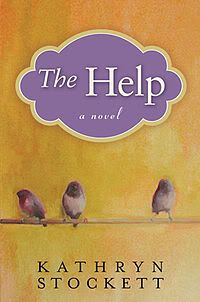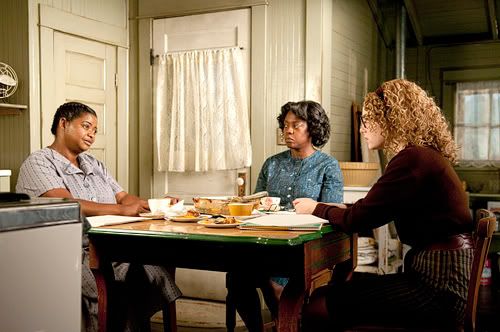Currently Reading: The Last Storyteller by Frank Delaney
Good morning all! It feels like a random observation day... ready, set, go!
~~~~~~~~~~~~~~~~
If you ever have the urge to read Lolita, go for it. However let me warn you: reading it is like watching a terrible reality show. It sickens you but you can't tear yourself away. You have to find out what happens, no matter what unfolds. And even though the plot disturbed me, I loved the writing style. This is one of the first books in which that has happened to me. I couldn't stand the main character, even disliked the girl he seduces, and yet the writing (while it does ramble at times) made me grin. How can that be? Humbert Humbert, the disturbing pedophile who narrates this novel, has an absolute gift with words, spinning puns out of thin air and twisting words like a puppeteer manipulates a marionette. He tells his story as though he was speaking, not worrying about perfect grammar or painting a picture. And this brings us to the best part. Many of Humbert Humbert's descriptions or side stories are often merely reduced to a phrase within a set of parentheses as he continues with his tale. It is brilliant in its simplicity. Take this amazing sentence from the beginning of the book: "My very photogenic mother died in a freak accident (picnic, lightning) when I was three..." Why I find that so beautiful still astonishes me. It is completely different from the deep and profound quotes I often pepper my Quote Book with, but I could not help writing this one in there as well. In two words, Humbert Humbert has described a major and tragic event in his life, but at the same time, he has left much of it to our imagination. Simultaneously, instances like these fill the reader with unease- how can he discuss his mother's death with such casual diffidence? In one sentence, Nabokov has given his readers one of the best portraits of the character we are going to follow for the rest of the book. Say it to yourself again.... (Picnic, lightning). Poetry in two words. I found myself waiting for sentences like these, refreshing as a cold glass of water on an August afternoon, despite the slight metallic taste. It is strange in its effect on me, but I suppose that is the point of Lolita. The writing is sickeningly sweet, as Humbert Humbert attempts to convince the reader, as well as himself and Lolita, of his innocence, justifying himself through verbage. It doesn't work... but his efforts are impressive. As Humbert himself admits, "You can always count on a murderer for a fancy prose style."
~~~~~~~~~~~~~~~~~
Is there anything better than a warm scone on a cold morning? I don't even think that warrants a response.
~~~~~~~~~~~~~~~~~
I have been winging myself through Irish history lately thanks to Edward Rutherford and savoring every minute of it. His Dublin Saga books, entitled Princes of Ireland and Rebels of Ireland, follow the generations of several families through 200 years of Irish history- from the days of the Irish chieftains and St. Patrick's mission to the end of the Irish Civil War in the 1920s, with Cromwell, Wolfe Tone, and Vikings in between. I am drawn to history because I love stories. While learning about grand historical events is necessary and fascinating, the stories of ordinary people make history real for me. Rutherford's saga does an amazing job bringing Irish history to life in a deeply gripping way, while also creating characters and families that I enjoyed following through the generations. The books satisfied the genealogist in me, for reading it was like following a narrative family tree. As the centuries passed between one chapter and the next, I enjoyed meeting new branches of a family and reading about the descendants of characters I came to know and love (or dislike) in previous chapters. It brought to life a truth that I have always known- our lives are merely chapters in a larger story; like characters in a play, we enter and exit at the appointed time and our descendants continue the next acts. Dublin Saga reinforces the beauty of this fact, for while it makes us sound insignificant, everybody has an effect, big or small, on the history we live through.
~~~~~~~~~~~~~~~~~
New books I am excited about: The Flight of Gemma Hardy by Margot Livesey and The Last Storyteller by Frank Delaney. In addition, I realized I have gone without Jane Eyre for far too long. I plan on going back to Thornfield Hall at the next opportunity. Expect a plethora of Jane Eyre-related posts when that happens. :)
~~~~~~~~~~~~~~~~~
My soul feels so full today- full of "spring is coming" smells, visits with family, chai tea, thick socks, inspiration, Nathan's smiles, my katz's purring, new books, libraries, research, sunlight on a wood floor, Mumford & Sons, and so much more. Happy day. Hope yours is happy too!
Thursday, February 16, 2012
Tuesday, February 14, 2012
Finding Mr. Rochester
Currently Reading: The Last Storyteller by Frank Delaney
Every year, Nate and I enact the same tradition for Valentine's Day- watching the BBC's Jane Eyre on the couch, in the dark, as we shiver over the scary scenes and sigh over the romantic scenes. Celebrating with the ultimate love story is one of my absolute favorite traditions and makes Valentine's Day truly special.
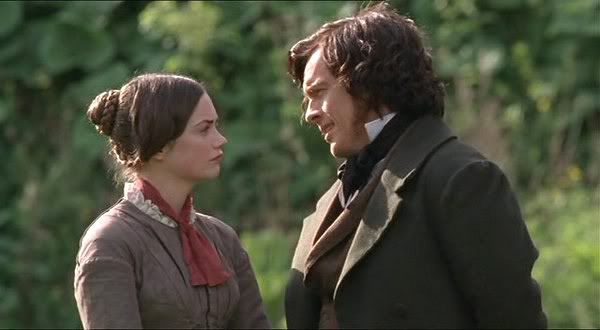
I may not read what many call "Chick Lit" but I do enjoy a good love story. There are so many unique and precious love stories in the literary world that impeccably capture the awesome wonder and desperate pain of love. You can find it in the unwavering support Agnes gives David Copperfield or in the tragic love affair of Robbie and Cecilia in Atonement. One finds it in the sacrifice of Sydney Carton for Lucie's happiness or the quiet courtship of Laura and Almanzo. It is there in every conversation Jane Eyre and Mr. Rochester have.
I found my Mr. Rochester a long time ago. As Jane writes at the end of the book, "I know what it is to live entirely for and with what I love best on earth. I hold myself supremely blest- blest beyond what language can express; because I am my husband's life as fully as he is mine."

Summer 2007
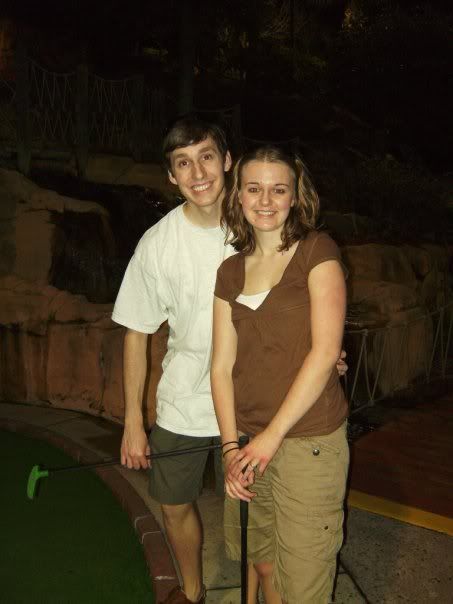
Spring 2008
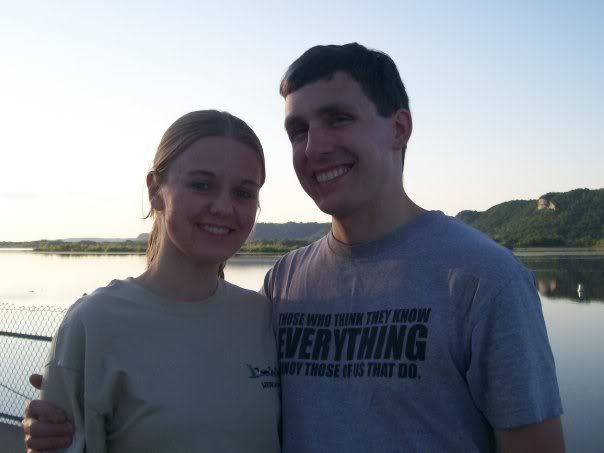
Summer 2009
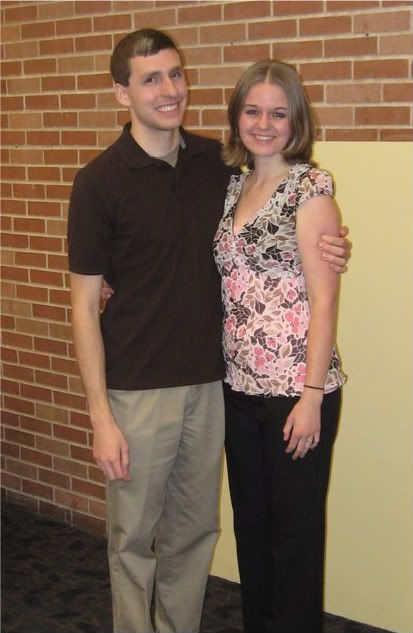
Spring 2010
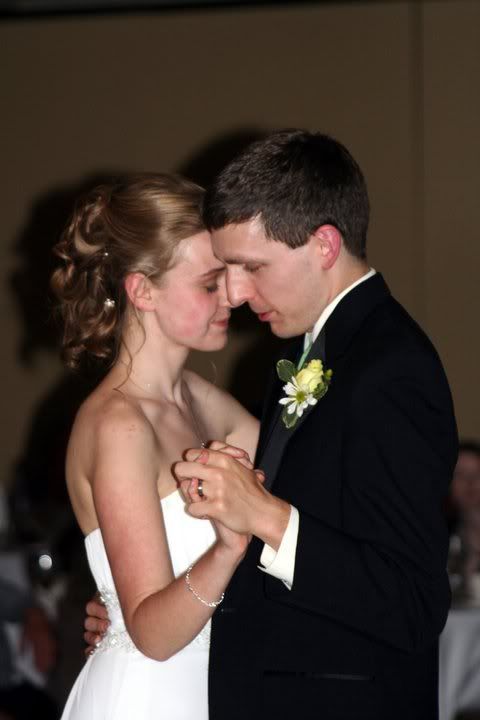
Summer 2011
Jane says it better than I ever could.
Whether you have love in your life today or are still waiting for your love story to start, I hope you have a wonderful Valentine's Day. Also, I would love to hear about some of your favorite love stories. There are always so many wonderful ones to discover. I'll be writing again soon- I have been a reading machine lately, so I'm looking forward to discussing some of my latest literary adventures. Happy Valentine's Day!
Every year, Nate and I enact the same tradition for Valentine's Day- watching the BBC's Jane Eyre on the couch, in the dark, as we shiver over the scary scenes and sigh over the romantic scenes. Celebrating with the ultimate love story is one of my absolute favorite traditions and makes Valentine's Day truly special.

I may not read what many call "Chick Lit" but I do enjoy a good love story. There are so many unique and precious love stories in the literary world that impeccably capture the awesome wonder and desperate pain of love. You can find it in the unwavering support Agnes gives David Copperfield or in the tragic love affair of Robbie and Cecilia in Atonement. One finds it in the sacrifice of Sydney Carton for Lucie's happiness or the quiet courtship of Laura and Almanzo. It is there in every conversation Jane Eyre and Mr. Rochester have.
I found my Mr. Rochester a long time ago. As Jane writes at the end of the book, "I know what it is to live entirely for and with what I love best on earth. I hold myself supremely blest- blest beyond what language can express; because I am my husband's life as fully as he is mine."

Summer 2007

Spring 2008

Summer 2009

Spring 2010

Summer 2011
Jane says it better than I ever could.
Whether you have love in your life today or are still waiting for your love story to start, I hope you have a wonderful Valentine's Day. Also, I would love to hear about some of your favorite love stories. There are always so many wonderful ones to discover. I'll be writing again soon- I have been a reading machine lately, so I'm looking forward to discussing some of my latest literary adventures. Happy Valentine's Day!
Wednesday, February 8, 2012
Who's Allowed to Write What?
Currently Reading: The Rebels of Ireland by Edward Rutherford
I heard an NPR story the other day that has really gotten me thinking and I cannot come up with an answer that satisfies me. The topic of discussion was The Help by Kathryn Stockett, a very popular book that is now receiving extra buzz since the movie adaptation has been nominated for several Oscars. If you haven’t read the book or seen the movie, then all you need to know is that it is about a white woman who secretly interviews black maids in 1960s Mississippi and writes a book about their experiences. This becomes a very dangerous project for the women involved; the black maids are literally putting their jobs and lives on the line to do this. The author of the book, Kathryn Stockett, is a white woman who grew up in the South; she has stated in interviews that the idea for the novel came from growing up with a black maid and realizing she loved her but never really knew her. The title of the NPR segment on Here & Now was “When Black Stories Are Written by White People”; in addition to The Help, they also discussed the play “Porgy and Bess” and the show “The Wire”. Renee Graham, the Here & Now pop culture critic, talked about her reactions to the book and movie as an African-American woman whose grandmother was a black maid. This is not the first NPR discussion I’ve heard of the book and as always, I listened intently because I find it very interesting to hear the reactions and perceptions books elicit in their readers. Graham had a lot to say about the movie and the book, most of it negative. Some of her main issues with it included: the fact that a story about black women still had to include a white protagonist, the poorly written “black vernacular," and the stereotypical portrayals of black women. Many of these comments I agree with, having read the book and seen the movie. Yet I was completely struck by one comment Graham made, which I will quote directly here. Although, as Graham says, Stockett grew up with a black maid in the South, “What makes you [Stockett] think you can now sit and write this book in the voice of these black maids?”
There are several ways of looking at this comment. One could say it is truth. Capturing a voice and portraying a character is difficult, but doing so when one is not from that “group” might be presumptuous and could lead to stereotyping or misrepresentation. I loved The Help, but this does occur, especially in the movie. However, one could say that Graham’s comment is a bit racist- that Stockett had no right to write a book about another race. My mind started spinning after this comment. Who or what then determines what a writer is “allowed” to write or not? Are there limits on what a writer can write? I have been unable to get this discussion out of my head. So is Graham right?
I am left straddling the fence, uncertain which side appeals to me more. On one hand, as Friedrich Behr tells Jo March, a book is most successful when you write what you know. Dickens’ and Conan Doyle’s London is so believable because they lived and breathed the grimy air amid personages they fancifully recreated in their books; Mark Twain knew that Mississippi River and the people along it like the back of his hand. Geraldine Brooks’ People of the Book is so realistic because she was actually a journalist in Bosnia during the years in which she sets the novel. Experience is the key that makes a novel more authentic and real for its readers.
The other side of the fence reads like this: If we only wrote about what we were intimately acquainted with, then wouldn’t there be a lot less books in the world? Historical or fantasy novels would cease to exist; narration would only be in first-person. I cannot fathom anything more stifling to the imagination than the argument that one should only write about what they are familiar with. If we take this a step further, then does this mean that because I am a woman, I cannot create a character who is a male? Because I am an American, I cannot construct a novel set in Ireland? Because I live in 2012, I cannot write a story set in 1774? Of course, I am exaggerating Graham’s point, but when explored further, the argument starts to sound ludicrous.
All in all, I can settle on several key points. Race is a delicate topic and the civil rights era is especially contentious, since it occurred within recent memory and is still fresh for many people. Therefore, I agree that one must tread lightly when discussing its presence, effect, and portrayal in literature. Another key point that I rest firmly on is historical detail in movies and books; as a lover of history, I wholeheartedly agree that any historical discrepancies take away from the value and power of a book like The Help. Yet I find myself thinking that no matter what one’s perception of The Help, the point is that it has gotten us talking. The book revealed an era and a way of life that are unknown to many Americans and quite possibly induced people to learn more about the real history behind it. As evidenced by the NPR show and even this post, the book has already become a stepping stone to further conversations about race and responsibility, as well as exploring the civil rights movement and analyzing how much farther our society still needs to come. For better or for worse, it has started a discussion that I have a feeling will not go away anytime soon. And after all, isn’t that the point of literature? Whether you like it or hate it, a truly good book is one that starts a conversation. It may change perspectives, teach lessons, and open eyes to the realities outside the fictional story, or it might not. But I have to admit, I love open-ended discussions like these. And I am still not finished pondering it.... I’ll have to keep mulling it over for a few days. What is your opinion? I would love to hear it.
Saturday, February 4, 2012
Reflections and Tolkien
Currently Reading: Rebels of Ireland by Edward Rutherford
Although I am going to put a poem in here, the past few days have been a bit rough and I can't really keep it out of my blog. Besides, writing is the most effective form of therapy there is, in my opinion. So bear with me.
I admire children. They will wear their clothes inside out, throw themselves into any project they set their mind to regardless of so-called talent, have temper tantrums in the middle of the grocery store, and blurt out the first thing that pops into their head. It may drive the adults in their life crazy, but the part I admire is that they do this because they are still young enough not to worry about what others think of them. They are entirely confident in themselves, not concerned with what the wider world says or believes. Ask a child what he wants to be when he grows up. None of them realistically envision part-time, dead-end jobs, or even worse, unemployment. None say, "Well, I hope I will get into the college program I want," or "I doubt I'll get that promotion." No, they immediately dream big, fully confident that their goals are not only possible, but inevitable. Goals like being a princess, the president, an astronaut, or a movie star. The Bible applauds a child-like faith.... but I think Jesus must have also wanted us to emulate a child's attitude to the world. Loving unconditionally. Laughing for no reason at all. Ignoring the bad and embracing the good. Fighting the bad guys... and winning. Finding happiness in the smallest things. Loving yourself.
When does that change for us? When does the world and all its negativity engulf our child-like souls? I have felt so heavy lately with a weight that seems like it will never come off. I have prayed that it will be taken away, but the problem is that it is entirely of my own making. I am the one who judges myself, who takes negative and critical comments way too far, who has lost my confidence, who dislikes myself, who has taken the world in and cannot get it out. And I am ashamed of this- ashamed of my weakness, my vulnerability. One of the forgiveness prayers in church states "I have not loved others as I have loved myself." But in my heart of hearts lately, it feels more like "I have not loved myself as I should." To "love yourself" sounds quite egotistical or selfish, but I don't mean it in that way. Instead, I view it in terms of an airplane emergency. Before the flight takes off, the flight attendant instructs us in how to use an oxygen mask. Number one rule: always put your own oxygen mask on first before helping others. Analogy translation: you have to take care of yourself and feel good about yourself before you can be of any use to anyone else. I am learning slowly how to reclaim my child-like confidence and find the self-esteem I once possessed. It's not easy. But I'll get there.
But in the meantime, a poem to comfort, from Tolkien's Lord of the Rings series. With any trial in life, literature is the Neosporin to my open cut. It soothes, it strengthens, and sometimes it stings. But overall, it helps heal.
The crownless again shall be king.
Have a glorious weekend.
Although I am going to put a poem in here, the past few days have been a bit rough and I can't really keep it out of my blog. Besides, writing is the most effective form of therapy there is, in my opinion. So bear with me.
I admire children. They will wear their clothes inside out, throw themselves into any project they set their mind to regardless of so-called talent, have temper tantrums in the middle of the grocery store, and blurt out the first thing that pops into their head. It may drive the adults in their life crazy, but the part I admire is that they do this because they are still young enough not to worry about what others think of them. They are entirely confident in themselves, not concerned with what the wider world says or believes. Ask a child what he wants to be when he grows up. None of them realistically envision part-time, dead-end jobs, or even worse, unemployment. None say, "Well, I hope I will get into the college program I want," or "I doubt I'll get that promotion." No, they immediately dream big, fully confident that their goals are not only possible, but inevitable. Goals like being a princess, the president, an astronaut, or a movie star. The Bible applauds a child-like faith.... but I think Jesus must have also wanted us to emulate a child's attitude to the world. Loving unconditionally. Laughing for no reason at all. Ignoring the bad and embracing the good. Fighting the bad guys... and winning. Finding happiness in the smallest things. Loving yourself.
When does that change for us? When does the world and all its negativity engulf our child-like souls? I have felt so heavy lately with a weight that seems like it will never come off. I have prayed that it will be taken away, but the problem is that it is entirely of my own making. I am the one who judges myself, who takes negative and critical comments way too far, who has lost my confidence, who dislikes myself, who has taken the world in and cannot get it out. And I am ashamed of this- ashamed of my weakness, my vulnerability. One of the forgiveness prayers in church states "I have not loved others as I have loved myself." But in my heart of hearts lately, it feels more like "I have not loved myself as I should." To "love yourself" sounds quite egotistical or selfish, but I don't mean it in that way. Instead, I view it in terms of an airplane emergency. Before the flight takes off, the flight attendant instructs us in how to use an oxygen mask. Number one rule: always put your own oxygen mask on first before helping others. Analogy translation: you have to take care of yourself and feel good about yourself before you can be of any use to anyone else. I am learning slowly how to reclaim my child-like confidence and find the self-esteem I once possessed. It's not easy. But I'll get there.
But in the meantime, a poem to comfort, from Tolkien's Lord of the Rings series. With any trial in life, literature is the Neosporin to my open cut. It soothes, it strengthens, and sometimes it stings. But overall, it helps heal.
All That Is Gold Does Not Glitter
by J.R.R. Tolkien
All that is gold does not glitter,
Not all who wander are lost;
The old that is strong does not wither,
Deep roots are not reached by the frost.
From the ashes a fire shall be woken,
A light from the shadows shall spring;
Renewed shall be blade that was broken,by J.R.R. Tolkien
All that is gold does not glitter,
Not all who wander are lost;
The old that is strong does not wither,
Deep roots are not reached by the frost.
From the ashes a fire shall be woken,
A light from the shadows shall spring;
The crownless again shall be king.
Have a glorious weekend.
Subscribe to:
Posts (Atom)
